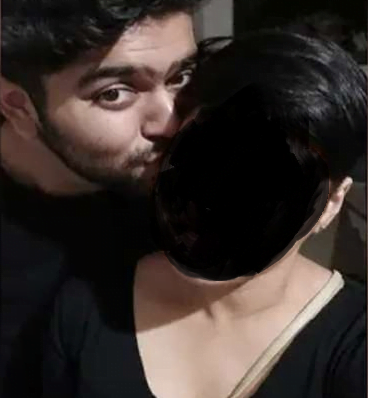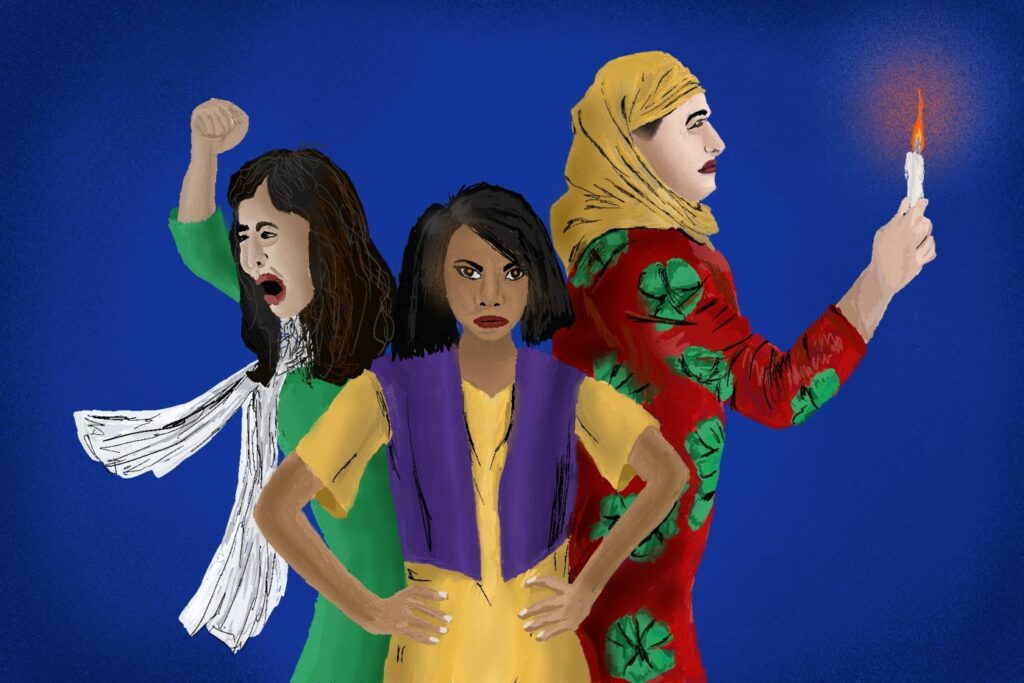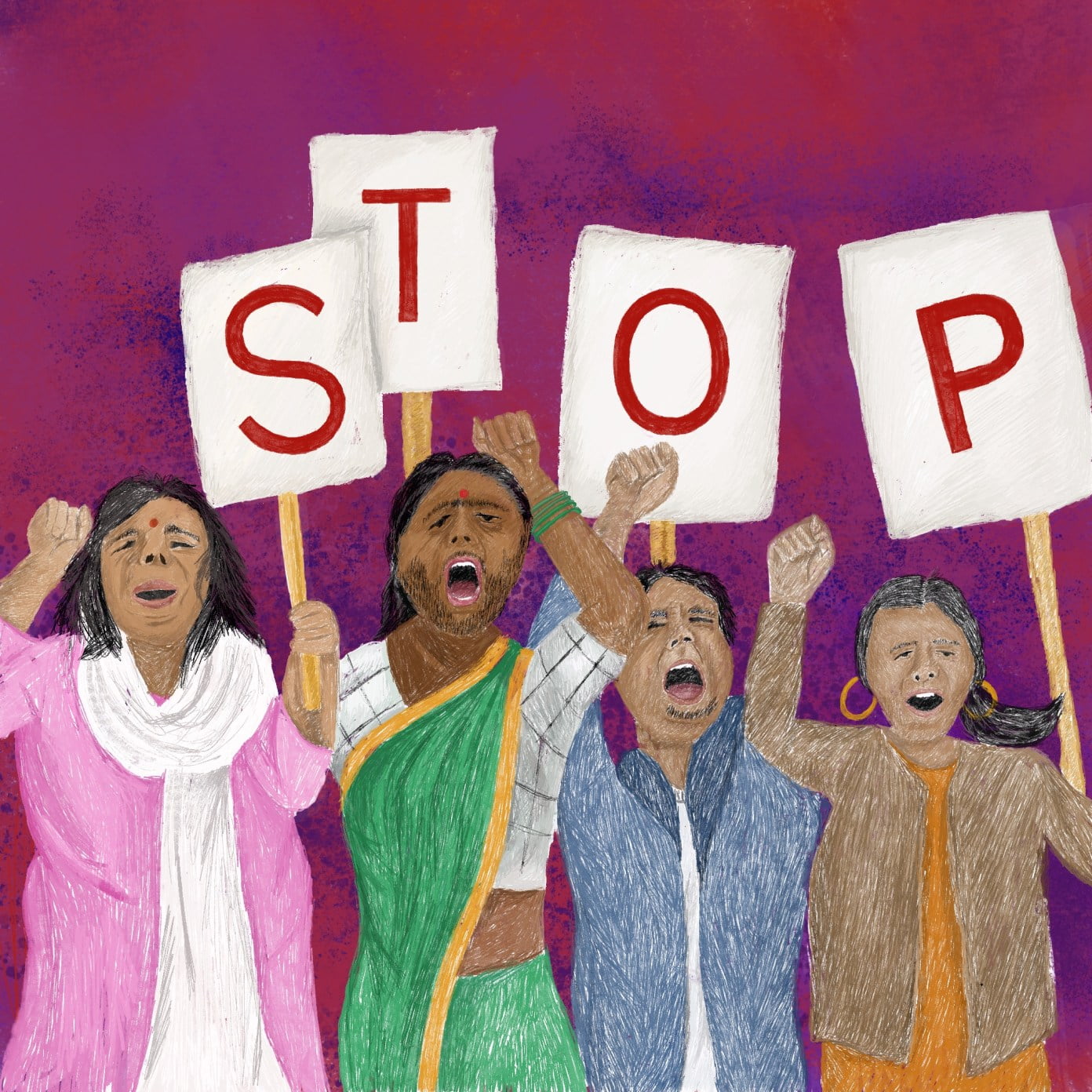Trigger Warning: Intimate Partner Violence
The shocking and brutal murder of Shraddha Walkar, reportedly by her three-year live-in partner Aaftab Amin Poonawaala, has gripped the entire nation and the capital city in fear and anxiety.
Investigations into the case so far have disclosed that 26-year-old Shraddha was hospitalised 2 years ago with internal injuries. As per the ongoing investigation, Shraddha, who was working in a call center at that time, was admitted to a hospital in Mumbai, between December 3 and 6, 2020. A doctor at the hospital, who had treated Shraddha told the Times of India that she had cervical spondylosis. There was no external injury but only internal injuries, suggesting that it could have been a result of long hours of sitting without exercise or physical violence. Photos of her shared by her friends at the time of the incident also show a bruised Shraddha. Police have also reported that the couple used to argue a lot over financial issues and it is suspected that the couple had a big fight that resulted in Shraddha’s murder.
Also Read: Victim Blaming, Love Jihad And Islamophobia: Is There A Room For Justice For Women In India?
The murder of Shraddha not only points towards a toxic relationship but also highlights the domestic violence or intimate partner violence that exists on a large scale in our country. Shraddha is among the thousands of women in India who are subjected to domestic abuse in their day-to-day lives.

As per a 2021 report by National Crime Records Bureau (NCRB), of the total 4,28,278 instances of crimes against women, 1,36,192 cases were registered under the ‘cruelty by husband or his relatives.’
Another report by National Family Health Survey (NFHS-5), 2019-21 suggests that women aged between 15-49 who were ever-married have faced intimate partner physical and/or sexual violence at least once in their lifetime. Over 38% of men in India have even admitted to having physically abused their partners, according to a study.
Additionally, the latest report by The National Family Health Survey (NFHS) also demonstrates how domestic violence in Indian society is still prevalent. According to the survey, 29.3% of married Indian women between the ages of 18 and 49 reported having experienced either domestic or sexual violence.
Also Read: Domestic Violence: When Sanctity Of Family Is Prioritised Over Dignity Of Survivors
These cases only include the ones that are reported by women, there are invariably many more that go unreported to the police. A study published in BMJ journals in 2020 highlights the reporting of a low number of spousal violence cases. It states that, in India, one in three married women experience spousal abuse, but barely one in 10 ask for help.
Shraddha was evidently in a toxic relationship and so are thousands of women in India. Though a lot of us never speak about it, we all have seen or heard of domestic violence while growing up. I personally have known someone close to me being yelled at and beaten at and she never decided to even complain about it to anyone, let alone ask for a divorce or file a complaint at the police station.
There are many bases that make women not talk about their abuse. The biggest one is “What will society think about me”, “What will happen to my family’s reputation?”, “How will society treat me? All these thoughts are the creation of our unequal patriarchal social order.
Women should not be demeaned or called names in order to leave relationships; rather, they should be motivated. The idea that society views negatively women who quit toxic relationships is what keeps many women in abusive relationships in the first place.
Additionally, the fear of not getting support from family and friends leads to women continuing to suffer abuse from their partners. A report released by National Family Health Survey (NFHS) in 2016 found that 86% of women did not report domestic violence to anybody, not even their friends or family members.
Manifestations of violence against women reflect the structural and institutional inequality that is a reality for most women in India. Violence against women in India is systematic and takes place in public and private spaces. It is underpinned by the persistence of patriarchal social norms and inter- and intra-sex hierarchies.
Also Read: Am I To Blame?’: The Conundrum Of Being In An Emotionally Abusive Relationship
Even though there are several helplines available and legislation like the Protection of Women from Domestic Violence Act 2005 introduced by the Indian government in 2005 that aims to safeguard women from domestic abuse, a large section of women in India stay in abusive marriages. The main reason is the normalization of domestic abuse over the years in our society. The other is financial reliance. Most women are homemakers who are completely reliant on their husbands or who leave their jobs to care for the home, which is why when it comes to extreme physical violence, women do not seek help from the police or anyone else.
A government survey that highlighted the views of men and women on domestic abuse made a shocking revelation. Over 40% of women and 38% of men stated that it was acceptable for a man to beat his wife if she disobeyed her in-laws, ignored her home or kids, left the house without notifying him, declined sex, or didn’t cook adequately.
Another survey found that 45% of Indian women justify their husbands beating them. Many women victims justify domestic violence, mainly due to social norms which lead them to believe that they are not good wives and deserve punishment.
There are several reasons that are deeply rooted in the patriarchal nature of our society. Women often don’t think that their family will be supportive towards their decision as getting out of a marriage is still a stigma in our society where women are blamed in most cases.

We live in a society where women are treated like objects that are supposedly controlled by a man or his family. From still thinking of cooking as a woman’s responsibility to restrictions on the independence of a grown woman, the misogynistic behaviour of society will only cause more damage to the lives of women.
A woman is blamed even when she is a victim and even when she is dead because of the abuse. Not just in the case of Shraddha Walkar where social media was flooded with comments questioning her decision to live with a guy that her parents disapprove of, but in many cases like the disturbing Nirbhaya case where people were shamelessly saying it was the girl’s fault to go out at night.
There’s an urgent need to put a stop to the victim-blaming culture. Violence, be it verbal, physical or sexual, towards anyone, shouldn’t be encouraged in our society. Otherwise, it will only result in the increase of many more cases like Shraddha Walkar.
This change can only occur if we as a society take a step towards changing the rigid patriarchal order of society which is alive for ages. The inequality in the social order will only lead to increased domestic violence and silence of the victim.
About the author(s)
Pragati Parihar is a masters student, studying International Relations at University College Dublin, Ireland, and is highly interested in topics such as feminism, gender based violence, and gender representation in politics. Also a travel enthusiast and an avid reader of mythology!





Just recently, in Maharashtra Ranjana Ramteke murdered Shyam Ramteke, in Meerut Noor Jahan murdered Irshad, in Ghaziabad Preeti Sharma killed Firoz and countless other cases of women murdering their husbands but mainstream media does not report crimes by women against men.
https://youtu.be/TeWZ-rOfo2k
This woman murdered 17 husbands.